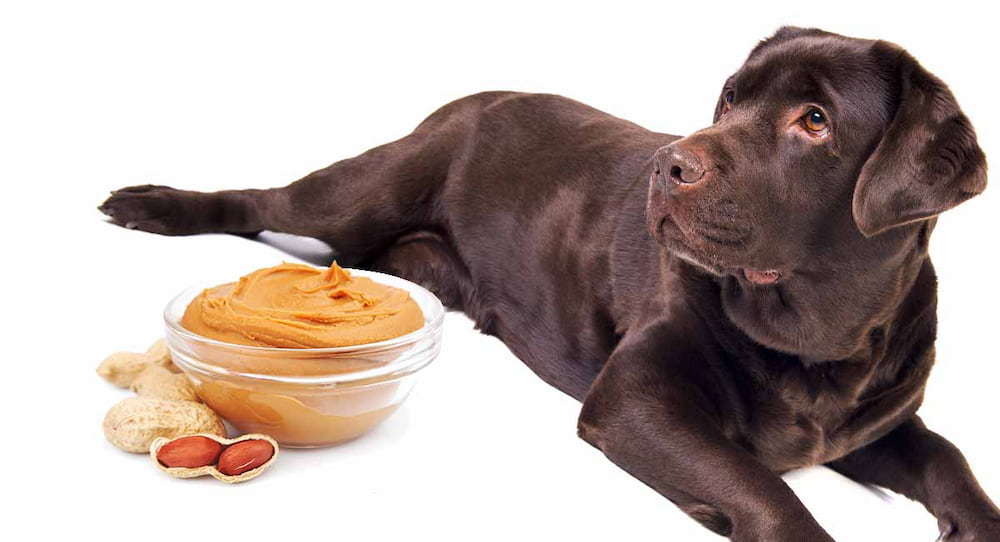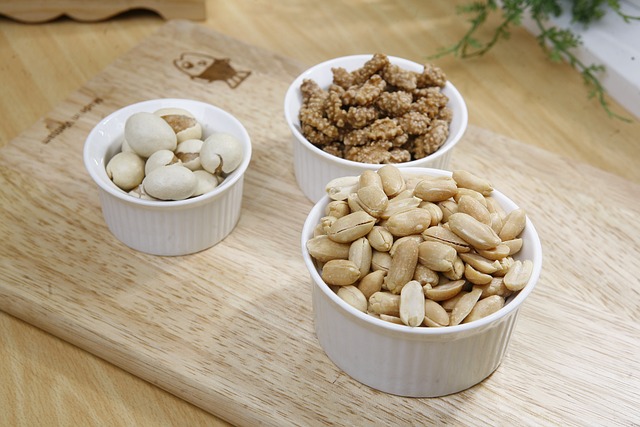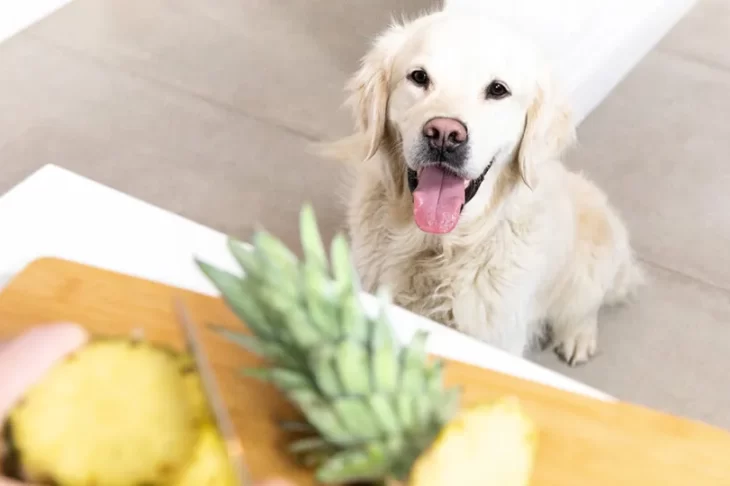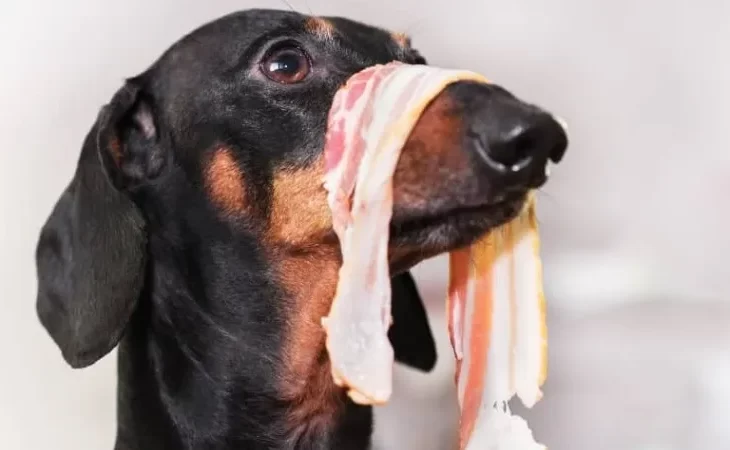
Can Dogs Eat Peanuts? Yes Or No? Are Peanuts Safe For Dogs?
Although they adore it, peanut butter is safe for dogs. Does the fact that peanut butter contains peanuts imply that dogs should be allowed to eat them?
Can dogs eat peanuts? Unfortunately, the answers to these questions are not as simple as a “yes” or “no.” Some varieties of peanut butter can kill your dog or cause an allergic reaction in them.
Let’s find out why.
Table of Contents
Are Peanuts Good for Dogs?
Peanuts are a powerhouse food that contain valuable minerals and vitamins.
Just like humans, dogs can benefit from them. Peanuts give our pets vital nutrients like vitamin B6, vitamin E, phosphorus, potassium, niacin, and many others.
But if you want to give your dog peanuts every day, you must exercise caution.
Are Nuts Harmful To Dogs?
In moderation, nuts are not harmful to our animal friends. But it’s best to refrain from regularly giving your dog peanuts or other similar treats.
Most pet owners also prefer to make homemade treats for their dogs. Thus, they can modify the ingredient dosages and take care of any potential health hazards.
Are Peanuts Safe For Dogs To Eat?
Of course, in moderation. The health of your dog depends on selecting the right peanuts and peanut butter.
It is crucial to be aware of how high in fat peanuts are. Since dogs typically have digestive issues with fats, this could result in some digestive issues.
Dogs who have digestive issues frequently vomit and have diarrhea.
In most cases, eating too many fats can lead to a painful condition called pancreatitis. When your dog regularly consumes fats, it can cause pancreatitis, which is an inflammation of the pancreas.
The condition can become fatal even though it is treatable.
So, are peanuts edible for dogs? In limited amounts, yes, they can.
The best varieties of peanuts are raw, dry-roasted, or unsalted, though these may not taste as good as salted varieties. If your dog eats one or two salted peanuts, they won’t get sick.
Consuming too many salted peanuts, however, has some drawbacks. These peanuts are loaded with sodium, which is bad for your dog’s health. So whenever you make a treat for your dog, use low-sodium peanuts.
How Can Dogs Benefit From Peanuts?
Nutrients and vitamins are abundant in peanuts. They are rich in niacin, protein, healthy fats, and vitamins B6 and E. Your dog will likely enjoy these nuts because they are things that most dogs crave.
The nuts are typically safe to eat and make for a nutritious snack as long as they are dry-roasted or raw, without salt or flavoring, and free of their shells.
Before giving your dog peanuts or any other human food, just make sure you speak with your veterinarian.
Health Benefits Of Peanuts For Dogs
Can dogs eat peanuts? Here are some peanut perks:
- Great source of protein
- Contain vitamins B-6 and niacin, which can promote a strong metabolism
- Contain vitamin E, which can promote a strong immune system and aid a variety of other organs
- Contain good fats
There are healthier treats available for your dog, but if given in moderation, plain shelled peanuts are usually fine as a treat every now and then.
When Do Peanuts Hurt Dogs?
There are several ways that peanuts can be harmful to dogs. The nuts themselves can be challenging to chew, and the shells can be choking hazards or difficult to digest, leading to intestinal blockage. They could obstruct the digestive tract if swallowed.
When consumed in moderation, peanuts’ high fat content can be beneficial. However, consuming too much fat can result in gastrointestinal distress and, if done repeatedly, pancreatitis. Only occasionally and sparingly should you give your dog peanuts.
Dogs shouldn’t eat salted or flavored peanuts because they may contain artificial chemicals or other ingredients that aren’t suitable for canines to consume. Sodium ion toxicosis can result from consuming too much sodium.
It shouldn’t be a big deal if your dog picks up one or two salted peanuts that have dropped to the floor. However, an excessive number can result in harmful medical problems.
It is significant to note that dogs can develop allergies to peanuts. Some dogs may develop allergies, which can range in severity from mild to severe. Dogs occasionally experience anaphylaxis, an allergic reaction that can be fatal.
Contact your veterinarian right away and stop giving your dog peanuts if you notice any symptoms of an allergic reaction in them, including coughing, sneezing, hives, swelling, trouble breathing, or other symptoms.
How To Feed Peanuts To Your Dog?
Now that you know the answer to the question “Can I feed peanuts to my dog?” is yes, there are a few precautions you should take when allowing your pup to have this treat. Make sure the peanuts you give your dogs are plain, without salt or flavorings. If you’ve wondered, “Canines eat peanut shells?” the answer is no. Before giving your dog peanuts, throw away the shells, and only give them a small amount occasionally. A daily treat like peanuts is not appropriate.
If you’ve ever given peanut butter to your dogs, you’ve probably noticed a positive response. When giving medication to pill-averse dogs, a small amount of peanut butter can work as an effective incentive. When placed inside a KONG toy, peanut butter can be used as a training reward or a pleasant surprise. Even taking a bath can be more enjoyable if you smear a stripe of peanut butter on the tub wall and watch what happens. In addition, recipes for doggie baked goods frequently call for peanuts and peanut butter.
Despite the fact that dogs adore the ooey treat, peanut butter frequently contains high levels of sugar and sodium. Many pet owners enjoy making their own mixes with just peanuts and their preferred dog-friendly oil; coconut oil is a good option. Before giving your dog store-bought peanut butter, check the label to make sure it doesn’t contain xylitol, which is poisonous to dogs.
Editor’s Choice: Can dogs eat shrimp? Yes, provided they are prepared and cooked properly. Shrimp are a tasty treat that your dog will enjoy, and they also have some health advantages.
Is It Possible For Dogs To Be Allergic To Peanuts?
Not only humans can develop peanut allergies. Despite being quite uncommon in the canine world, dogs can also experience them. Here are the signs of peanut allergy you should be watching out for:
- Trouble breathing
- Coughing
- Itchy skin
- Skin swelling
- Vomiting
Although allergic reactions can occasionally be mild, they can also be more severe. Since it’s not always clear how severe the reaction is, you should always call your veterinarian if you start to notice any unusual symptoms.

Can Peanut Butter Cause Allergies In Dogs?
A tasty treat for dogs is peanut butter. A severe allergic reaction, however, can occur if they use the incorrect product. A peanut butter without the artificial sweetener xylitol is the best option for your dog’s safety.
Even though this ingredient is frequently used as a sugar substitute in a variety of food products, it is extremely toxic to dogs and should never be given to them.
It can cause a condition known as hypoglycemia, which refers to a drop in blood sugar level resulting in liver failure that can be fatal.
Before purchasing peanut butter for your dog, you have a responsibility as a pet owner to read the label. Keep it out of your shopping cart if xylitol is listed in the ingredients. Some brands also use “natural sweetener” or “sugar alcohol” in place of the xylitol.
No matter if it contains xylitol, avoid feeding your dog large amounts of peanut butter. Always maintain a moderate and balanced diet for your pet to ensure their long-term health.
Call animal poison control or your veterinarian right away if your dog accidentally consumes xylitol. Disorientation, seizures, panting, stumbling, and collapsing are some of the typical symptoms of xylitol poisoning.
Which Dog Breeds Ought To Stay Away From Peanuts?
Some dogs with underlying health conditions should avoid eating peanuts altogether, including:
- the kidney problems of dogs. The kidney problems in your dog may become worse because peanut butter frequently contains a lot of sodium or salt.
- dogs on particular diets. Some dogs follow strict diets that their veterinarians advise. So it’s best not to give peanut butter to your dog if they are on a special diet.
- dogs that are heavier than usual. Peanut butter is bad for overweight dogs because it contains a lot of fat.
How Much Peanuts Should I Feed My Dog That Is Safe?
The secret to figuring out how much peanuts to give your dog is moderation. Even if your dog enjoys eating peanuts, you shouldn’t let them consume more than a few per day.
The recommended break between intakes is two to three days.
Before giving your dog peanuts, especially the smaller breeds, it is preferable to remove the shells. This is due to the fibrous substance’s potential to cause your dog to choke.
If you have more questions or concerns, visit your vet and determine the right and safe peanut dosage for your furry friend.
FAQs
How Would My Dog React If It Ate Peanuts?
Dogs who eat peanuts run a slight risk of choking, but if they only eat a few of these nuts, your pet should be fine. When peanuts are salted or consumed in large quantities, they can be more dangerous for canines and increase their risk of choking, gastrointestinal problems, and obesity. However, you should be aware that the answer to “Can you eat honey-roasted peanuts with dogs?” is a firm no. Be aware that some human snacks contain xylitol, an artificial sweetener that is extremely toxic to dogs. Before giving peanuts to your pet, remove the shells because they present a bigger choking risk than unshelled nuts. GI obstruction can also be brought on by the indigestible shells.
Why Are Nuts Bad For My Dogs?
While peanuts contain the healthy fats your dog needs for supple skin and coat, a strong immune system, and energy, too much fat can harm your dog’s digestion. It can result in obesity and even pancreatitis, which can seriously ill or even kill your dog.
Dogs may also be harmed by excessive salt. They run the risk of suffering from severe salt poisoning if they eat too much. You shouldn’t give your dog any heavily salted foods as a snack, but if they accidentally eat one or two salted peanuts, it probably won’t be toxic. Additions to flavors frequently have no nutritional value and may be harmful to your dog. There’s really no need to add any additional flavors because most dogs enjoy the taste of plain peanut butter.
Do dogs allow peanuts? But not with the shells. Although peanut shells are not toxic to dogs, they won’t do their digestive systems any favors. Peanut shells are very difficult to digest and have no nutritional value. Additionally difficult to chew, peanut shells pose a choking risk if ingested. When eating peanuts for yourself, be sure to throw away the shells right away to keep your dog safe.
What Nuts Are Off Limits To My Dogs?
Although a small amount usually won’t hurt your dog, whole and chopped nuts aren’t generally suggested as dog snacks. However, you should never give your dog macadamia nuts. If your dog ingests them, they may experience alarming symptoms, such as:
- Lethargy
- Vomiting
- Weakness in back legs
- Inability to walk
- Fever
- Shaking and tremors
If you suspect your dog has eaten macadamia nuts, call pet poison control or go to the vet right away. Your dog could be poisoned by even one macadamia nut. If your dog eats moldy nuts, you should also see a vet right away. Dogs who are exposed to tremorgenic mycotoxins may experience seizures or other neurological symptoms.
Final Words
Although peanuts are not toxic to dogs and your pet can benefit from their nutritional benefits when given them occasionally, there are some situations where peanuts may be dangerous for dogs. For instance, you ought to stay away from any peanuts that have a chocolate coating or are salted or flavor-flavored. The best kind of peanuts to give a dog are unsalted, dry-roasted, or raw peanuts (without the shells), ideally given in small amounts as a treat.
Always consult your veterinarian before giving your dog any human foods. Asking a veterinarian for advice specific to your dog can help you avoid unexpected reactions, such as possible allergies or digestive problems.
Many thanks for reading.




